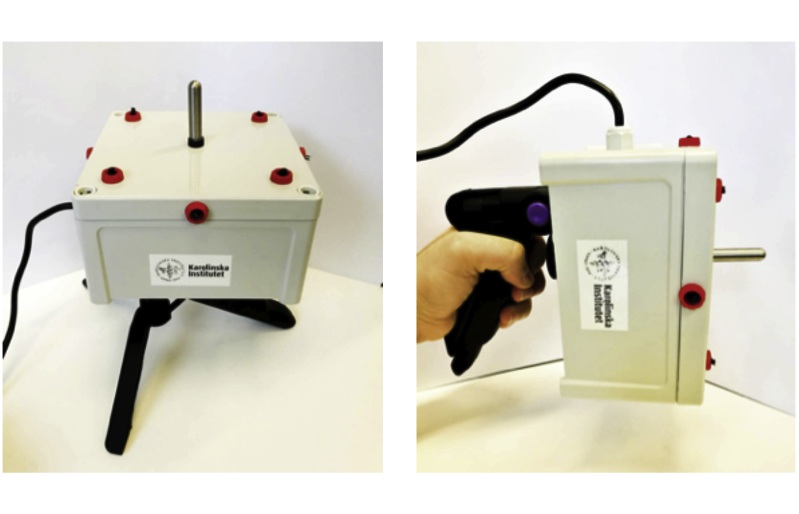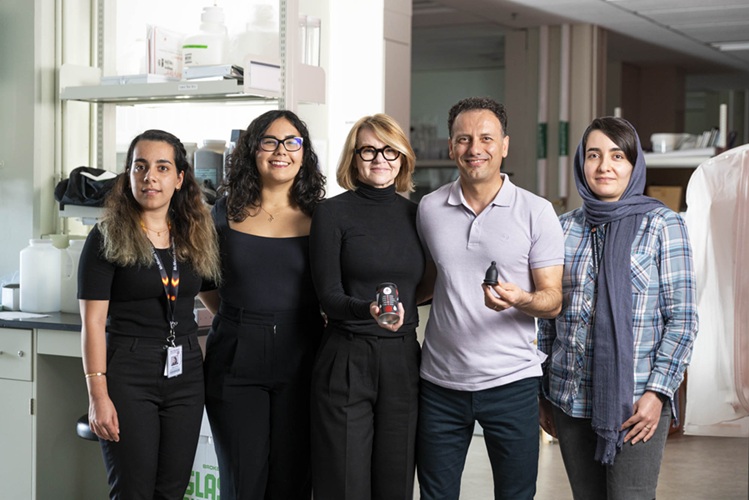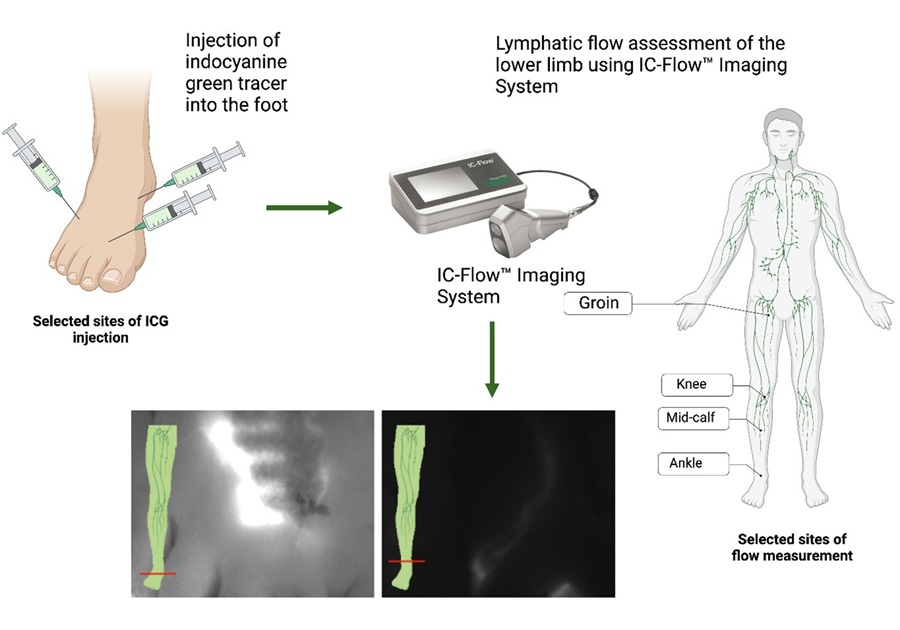Surgery Not an Option for Majority of Global Population 
|
By HospiMedica International staff writers Posted on 06 May 2015 |
Five billion people worldwide do not have access to safe and affordable surgery when they need it, and millions are dying from common, easily treatable conditions, according to a new report.
According to a report by the Lancet Commission on Global Surgery, two thirds of the world’s population does not have access to safe and affordable surgery and anesthesia when they need it, with low- and middle-income countries (LMICs) being the hardest hit. In these countries, as many as nine out of ten people cannot access basic surgical care, including for such common surgical conditions as appendicitis, orthopedic fractures, or obstructed labor.
The commission, composed of 25 leading experts in surgery and anesthesia, took contributions and evidence from more than 110 countries, summarizing its conclusions in the report, which is titled Global surgery 2030: evidence and solutions for achieving health, welfare and economic development. The report lists statistics that adversely affect LMICs in eastern, western, and central sub-Saharan Africa, as well as south Asia. An extra 143 million surgical procedures are needed in these countries to save lives and prevent disability, according to the report.
Across the world, 33 million individuals each year, about a quarter of those who have a surgical procedure, will face catastrophic health expenditure on surgery and anesthesia. And without urgent investment in surgery, LMICs will continue to have losses in economic productivity, estimated cumulatively at USD 12.3 trillion between 2015 and 2030. But this situation could be turned around in two decades, if the international community wakes up to the enormous scale of the problem, and commits to the provision of better global surgical and anesthesia care worldwide, according to the commission.
“Surgery is an integral, indivisible component of a properly functioning health system, and all people should have access to safe, high-quality surgical and anesthesia care with financial protection when needed,” concluded the executive summary of the commission. “The purpose of the Lancet Commission on Global Surgery is to make this vision a reality by embedding surgery within the global health agenda, catalyzing political change, and defining scalable solutions for provision of quality surgical and anesthesia care for all.”
The commission is chaired by John G. Meara, MD, of Harvard Medical School (Boston, MA, USA), Andy Leather, MBBS, FRCS, MS, at King’s College London (KCL; London, UK) , and Lars Hagander, MD, of Lund University (Sweden).
Related Links:
The Lancet Commission on Global Surgery
Harvard Medical School
King’s College London
Lund University
According to a report by the Lancet Commission on Global Surgery, two thirds of the world’s population does not have access to safe and affordable surgery and anesthesia when they need it, with low- and middle-income countries (LMICs) being the hardest hit. In these countries, as many as nine out of ten people cannot access basic surgical care, including for such common surgical conditions as appendicitis, orthopedic fractures, or obstructed labor.
The commission, composed of 25 leading experts in surgery and anesthesia, took contributions and evidence from more than 110 countries, summarizing its conclusions in the report, which is titled Global surgery 2030: evidence and solutions for achieving health, welfare and economic development. The report lists statistics that adversely affect LMICs in eastern, western, and central sub-Saharan Africa, as well as south Asia. An extra 143 million surgical procedures are needed in these countries to save lives and prevent disability, according to the report.
Across the world, 33 million individuals each year, about a quarter of those who have a surgical procedure, will face catastrophic health expenditure on surgery and anesthesia. And without urgent investment in surgery, LMICs will continue to have losses in economic productivity, estimated cumulatively at USD 12.3 trillion between 2015 and 2030. But this situation could be turned around in two decades, if the international community wakes up to the enormous scale of the problem, and commits to the provision of better global surgical and anesthesia care worldwide, according to the commission.
“Surgery is an integral, indivisible component of a properly functioning health system, and all people should have access to safe, high-quality surgical and anesthesia care with financial protection when needed,” concluded the executive summary of the commission. “The purpose of the Lancet Commission on Global Surgery is to make this vision a reality by embedding surgery within the global health agenda, catalyzing political change, and defining scalable solutions for provision of quality surgical and anesthesia care for all.”
The commission is chaired by John G. Meara, MD, of Harvard Medical School (Boston, MA, USA), Andy Leather, MBBS, FRCS, MS, at King’s College London (KCL; London, UK) , and Lars Hagander, MD, of Lund University (Sweden).
Related Links:
The Lancet Commission on Global Surgery
Harvard Medical School
King’s College London
Lund University
Latest Surgical Techniques News
- Superior Orthopedic Implants Combat Infections and Quicken Healing After Surgery
- Laser-Based Technique Eliminates Pancreatic Tumors While Protecting Healthy Tissue
- Surgical Treatment of Severe Carotid Artery Stenosis Benefits Blood-Brain Barrier
- Revolutionary Reusable Duodenoscope Introduces 68-Minute Sterilization
- World's First Transcatheter Smart Implant Monitors and Treats Congestion in Heart Failure
- Hybrid Endoscope Marks Breakthrough in Surgical Visualization
- Robot-Assisted Bronchoscope Diagnoses Tiniest and Hardest to Reach Lung Tumors
- Diamond-Titanium Device Paves Way for Smart Implants that Warn of Disease Progression
- 3D Printable Bio-Active Glass Could Serve as Bone Replacement Material
- Spider-Inspired Magnetic Soft Robots to Perform Minimally Invasive GI Tract Procedures
- Micro Imaging Device Paired with Endoscope Spots Cancers at Earlier Stage
- AI Spine Model Could Reduce Surgical Risks
- Novel Method Uses Interstitial Fluid Flow to Predict Where Brain Tumor Can Grow Next
- World’s First Custom Anterior Cervical Spine Surgery Performed Using Personalized Implant
- Implantable Biodegradable Scaffold Helps Broken Bones Regrow Quickly
- First Human Spinal Cord Repair Using Patient Own Cells Could Cure Paralysis
Channels
Critical Care
view channel
New Device Detects Tuberculosis DNA Directly in Exhaled Air
Tuberculosis (TB) is an airborne disease that remains one of the world's deadliest infections, primarily diagnosed through sputum analysis. However, many patients cannot produce sputum, making detection... Read more
New Menstrual Cup Could Detect Infections and Improve Diagnostics
Menstrual health is a critical issue for millions of girls and women, particularly in low- and middle-income countries where access to safe and dignified products remains a barrier to education, employment,... Read morePatient Care
view channel
Revolutionary Automatic IV-Line Flushing Device to Enhance Infusion Care
More than 80% of in-hospital patients receive intravenous (IV) therapy. Every dose of IV medicine delivered in a small volume (<250 mL) infusion bag should be followed by subsequent flushing to ensure... Read more
VR Training Tool Combats Contamination of Portable Medical Equipment
Healthcare-associated infections (HAIs) impact one in every 31 patients, cause nearly 100,000 deaths each year, and cost USD 28.4 billion in direct medical expenses. Notably, up to 75% of these infections... Read more
Portable Biosensor Platform to Reduce Hospital-Acquired Infections
Approximately 4 million patients in the European Union acquire healthcare-associated infections (HAIs) or nosocomial infections each year, with around 37,000 deaths directly resulting from these infections,... Read moreFirst-Of-Its-Kind Portable Germicidal Light Technology Disinfects High-Touch Clinical Surfaces in Seconds
Reducing healthcare-acquired infections (HAIs) remains a pressing issue within global healthcare systems. In the United States alone, 1.7 million patients contract HAIs annually, leading to approximately... Read moreHealth IT
view channel
Printable Molecule-Selective Nanoparticles Enable Mass Production of Wearable Biosensors
The future of medicine is likely to focus on the personalization of healthcare—understanding exactly what an individual requires and delivering the appropriate combination of nutrients, metabolites, and... Read moreBusiness
view channel
Philips and Masimo Partner to Advance Patient Monitoring Measurement Technologies
Royal Philips (Amsterdam, Netherlands) and Masimo (Irvine, California, USA) have renewed their multi-year strategic collaboration, combining Philips’ expertise in patient monitoring with Masimo’s noninvasive... Read more
B. Braun Acquires Digital Microsurgery Company True Digital Surgery
The high-end microsurgery market in neurosurgery, spine, and ENT is undergoing a significant transformation. Traditional analog microscopes are giving way to digital exoscopes, which provide improved visualization,... Read more
CMEF 2025 to Promote Holistic and High-Quality Development of Medical and Health Industry
The 92nd China International Medical Equipment Fair (CMEF 2025) Autumn Exhibition is scheduled to be held from September 26 to 29 at the China Import and Export Fair Complex (Canton Fair Complex) in Guangzhou.... Read more













